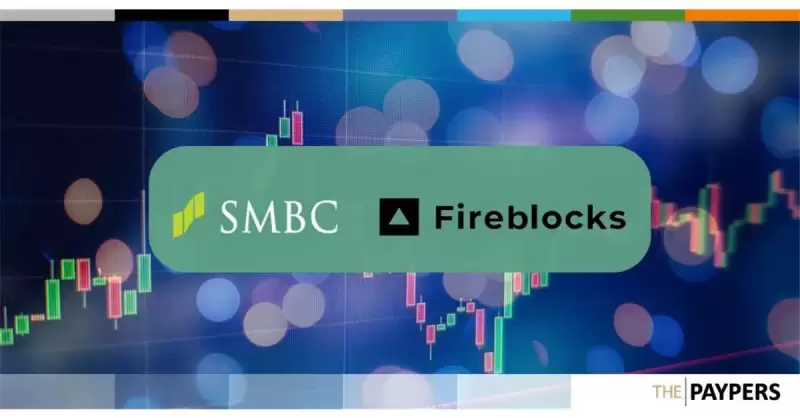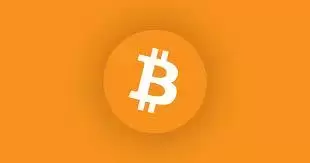 |
|
 |
|
 |
|
 |
|
 |
|
 |
|
 |
|
 |
|
 |
|
 |
|
 |
|
 |
|
 |
|
 |
|
 |
|
Articles d’actualité sur les crypto-monnaies
Former UK Prime Minister Liz Truss Expresses Support for Bitcoin, Deep Reservations About CBDCs
Jan 10, 2025 at 10:00 pm

Former UK Prime Minister Liz Truss has expressed support for Bitcoin and a deep skepticism toward central bank digital currencies (CBDCs) during an interview with Peter McCormack, host of the What Bitcoin Did podcast.
Truss, who served briefly as Prime Minister and Leader of the Conservative Party, discussed monetary policy, the independence of the Bank of England, and the implications of CBDCs during the interview.
During the interview, Truss explained her stance on digital assets, highlighting their ability to “take power away from central banks.” She stated:
“I am a supporter of Bitcoin and cryptocurrency. I think they’re a good thing. I think they help take power away from central banks… I’m very, very worried about anything like a central bank digital currency completely. I think they give the state huge amounts of power.”
She expressed concern over the unchecked influence wielded by central banks, especially the Bank of England, which she argued remains “unaccountable.” Referring to quantitative easing (QE) and inflationary pressures, Truss noted:
“We’ve had huge levels of inflation, we had QE that went on for far too long, asset price spikes… and the result was inflation. We were told beforehand that it was going to be transitory and it wasn’t transitory, even though the lessons had all been learned before.”
According to Truss, these policy decisions—combined with the lack of accountability—have resulted in significant financial strain on British households.
McCormack pressed Truss on whether a central bank is truly necessary. She underscored that if the UK decides to maintain a central bank, it must address its governance:
“That’s an interesting question. Well, if we do have one, it ought to be accountable. So at the moment, we’ve got the worst of all worlds—we’ve got an unaccountable central bank.”
Truss criticized the transfer of power from the Treasury to the Bank of England dating back to former Chancellor Gordon Brown’s move to grant the bank operational independence. She suggested that a lack of robust oversight led to policy missteps with long-term consequences.
“What Gordon Brown did in making it independent… you can see the results. We’ve had QE for far too long… supporting very, very lax government spending policies with printing money.”
Truss made it clear she sees potential danger in an official central bank digital currency. Highlighting her primary misgiving, she said:
“I think they give the state huge amounts of power and what we know is overweening state power is not a good thing… it also feels like part of the surveillance State.”
Her remarks echoed broader concerns within the cryptocurrency community, where critics warn that a CBDC could enable governments to monitor and control individual transactions more directly than with cash or decentralized cryptocurrencies.
While reflecting on her tenure in government, Truss revealed that delving into monetary policy matters was discouraged:
“When I was at the Treasury and tried to ask about monetary policy, I was told it wasn’t our responsibility, it was the responsibility of the Bank of England… during the leadership campaign in 2022 where I flagged up all the policies I was going to pursue, I said that we should look again at the Bank of England’s mandate.”
She insisted that a broader debate on the mandate and accountability of the Bank of England is crucial to ensuring more robust monetary policies. According to Truss, the Chancellor of the Exchequer should not shy away from engaging on such policies, despite resistance from the Bank or accusations of threatening its independence.
“Whenever an organization justifies itself by saying it’s independent, that in my view is a red flag that there is a problem. So all of this should be talked about: the international monetary system, the independence of central banks, the role of cryptocurrencies,” Truss remarked.
Clause de non-responsabilité:info@kdj.com
Les informations fournies ne constituent pas des conseils commerciaux. kdj.com n’assume aucune responsabilité pour les investissements effectués sur la base des informations fournies dans cet article. Les crypto-monnaies sont très volatiles et il est fortement recommandé d’investir avec prudence après une recherche approfondie!
Si vous pensez que le contenu utilisé sur ce site Web porte atteinte à vos droits d’auteur, veuillez nous contacter immédiatement (info@kdj.com) et nous le supprimerons dans les plus brefs délais.
-

- 5 meilleurs cryptos à acheter maintenant qui peuvent faire de vous un millionnaire crypto d'ici 2025
- Apr 03, 2025 at 07:10 pm
- La jungle numérique est sauvage, mais parmi le bruit, cinq vedettes ont des baleines cryptographiques qui parlent et les investisseurs de tous les jours qui regardent de près.
-

- Binance étend sa plate-forme de trading Spot avec de nouvelles paires basées sur l'USDC et des services de bot de trading
- Apr 03, 2025 at 07:10 pm
- Binance, l'un des échanges de crypto-monnaie les plus importants et les plus influents au monde, a annoncé une expansion importante de sa plate-forme de trading.
-

- SMBC et Circle unissent leurs forces pour explorer les cas d'utilisation des stablescoin sur les marchés financiers
- Apr 03, 2025 at 07:05 pm
- L'initiative se concentrera sur le développement d'un cadre pour émettre et faire circuler ces actifs numériques, ainsi que l'analyse des considérations réglementaires et des applications potentielles du monde réel.
-

- Ozak Ai se dresse un projet avec des applications du monde réel, tirant parti de l'intelligence artificielle pour convertir la technologie de la blockchain
- Apr 03, 2025 at 07:05 pm
- Les jetons axés sur le battage médiatique dominent fréquemment le marché, attirant des vagues d'acheteurs spéculatifs pour poursuivre de brefs revenus. Les pièces MEME, en particulier, ont constitué une popularité pour une augmentation explosive observée par des accidents de tout aussi dramatiques, laissant de nombreux commerçants avec des pertes généralisées.
-

-

- Ye Zhang, co-fondateur de Scroll, claque des propositions d'impôt sur les réseaux de couche 2 comme "toxique"
- Apr 03, 2025 at 07:00 pm
- Ye Zhang, co-fondateur de la solution de mise à l'échelle de la couche 2 Ethereum, a fortement critiqué les propositions pour imposer des frais aux réseaux de couche 2, appelant l'idée "toxique"
-

- Bitcoin peut-il vraiment atteindre 1 million de dollars par pièce?
- Apr 03, 2025 at 06:55 pm
- Le Bitcoin est depuis longtemps les montagnes russes ultimes pour le monde financier. De ses humbles débuts en tant qu'expérience numérique de niche en 2009 à son statut de classe d'actifs de plusieurs villages aujourd'hui
-

- Les législateurs démocrates font pression sur la SEC pour enquêter sur les liens du président Trump avec World Liberty Financial
- Apr 03, 2025 at 06:55 pm
- Les législateurs démocrates font pression sur la Securities and Exchange Commission (SEC) pour plus de détails sur les liens du président Donald Trump avec la société de crypto-monnaie World Liberty
-

- Le fondateur de Tron, Justin Sun, allègue que First Digital Trust (FDT) est «efficacement insolvable» et incapable de répondre aux demandes de rédemption.
- Apr 03, 2025 at 06:50 pm
- La déclaration de Sun suit des informations selon lesquelles il est intervenu pour soutenir TrueUSD (TUSD) après avoir révélé que 456 millions de dollars de ses réserves étaient illiquides.



























































